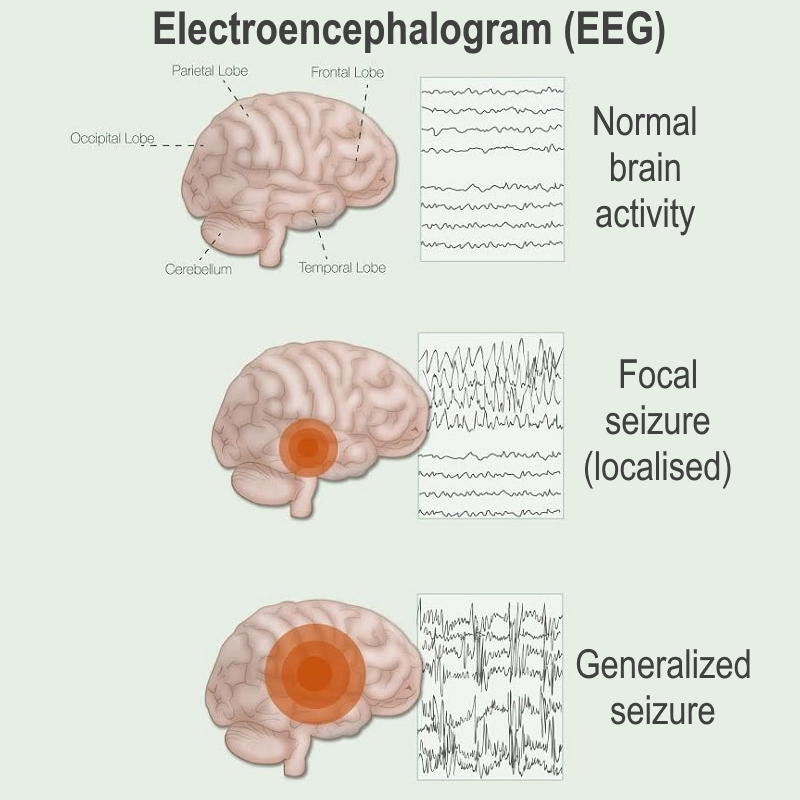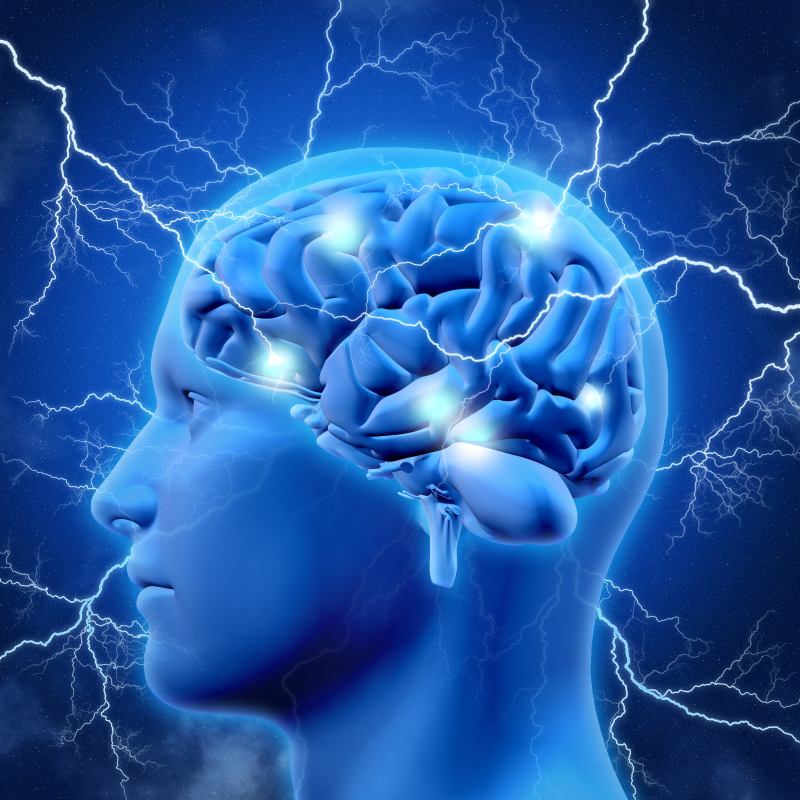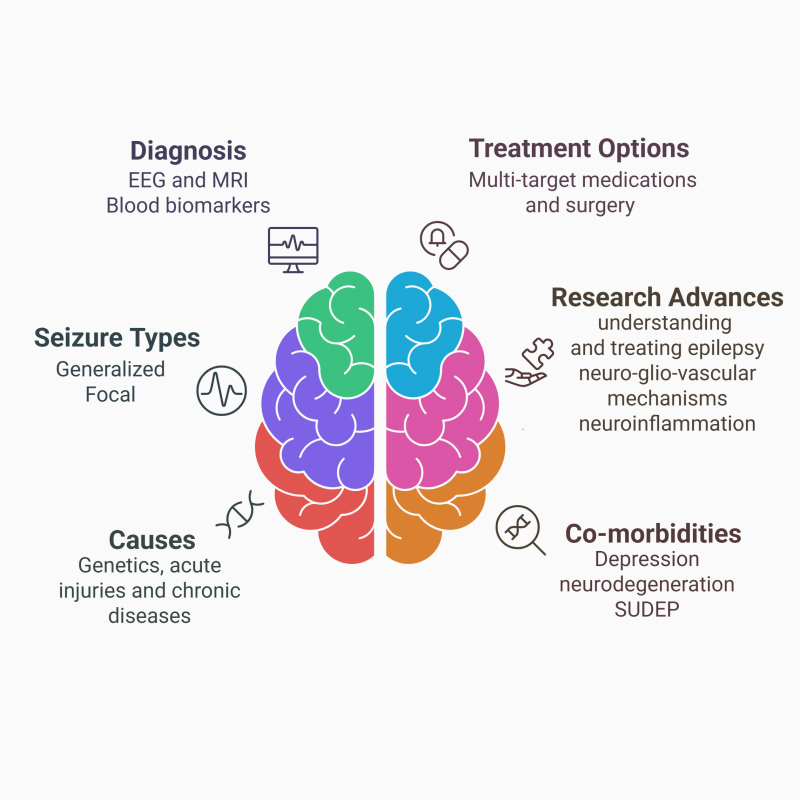Epilepsy
Epilepsy is a chronic neurological disorder characterized by recurrent, unprovoked seizures due to abnormal electrical activity in the brain. Epilepsy affects 50 million people worldwide, with a global prevalence of 0.5–1%. In France, more than 600 000 people suffer from epilepsy and half of them children.

/ Symptoms and diagnostic
It affects people of all ages and can result from various causes, including genetic factors, brain injuries, infections, and developmental disorders. The exact mechanism of epilepsy is unknown but there is evidence that epileptic seizures are usually not a random event and are often brought on by factor (also known as triggers) such as stress, flickering light, lack of sleep, alcohol, infections, among others.
Seizures in epilepsy vary in type and severity, ranging from brief lapses in awareness to full-body convulsions. Partial (focal) seizures concern a specific brain region, while generalized seizures affect both hemispheres from onset. Theses variabilities allow classifying different epilepsy syndromes with specific features and patterns.
Diagnosis typically involves clinical evaluation, electroencephalography (EEG), and neuroimaging techniques such as MRI.

/ Treatment options
One of the major challenges in epilepsy management is achieving effective seizure control. While anti-seizure medication (ASM) help many patients, about one-third of individuals with epilepsy are drug-resistant, meaning their seizures persist despite medication. Additionally, side effects from ASM, such as cognitive impairment, mood disturbances, and systemic complications, pose significant concerns. Surgical interventions, neurostimulation therapies, and dietary approaches like the ketogenic diet offer alternative treatments, but they are not suitable for all patients.
Moreover, epilepsy is frequently associated with co-morbidities that can significantly influence quality of life. Cognitive impairments, psychiatric disorders such as anxiety and depression, and an increased risk of sudden unexpected death in epilepsy (SUDEP) are common. Additionally, epilepsy can co-exist with conditions like autism spectrum disorder and migraines, complicating diagnosis and treatment strategies.


/ Research advances
Our research aims on improving diagnostic and treatment by understanding the underlying mechanisms of the disease. We investigate the role of microvascular permeability dysfunction, including blood-brain barrier disruption, and neuroinflammatory activation of glial cells in the seizures initiation and progression (Nicola Marchi – Étienne Audinat team). We focus on epileptic disorders that present significant clinical challenges, particularly those refractory to currently available ASMs. We are currently conducting studies on the implication of glial cells in Dravet syndrome (a severe genetic type of epilepsy in children, often triggered by fever). We also investigate the bidirectional relationship between aging and epilepsy, given the heightened prevalence of seizures in the elderly and their convergence with cognitive decline and neurodegenerative processes.

/ Support and information
Numerous associations support patients and their families, such as the Fondation Française pour la Recherche sur l’Épilepsie (FFRE), Épilepsie-France and the Ligue Française contre l’Épilepsie (LFCE). They provide financial support for research and raise public awareness of this often poorly understood disease. Major French organisations also support our work, including the French National Research Agency (ANR), the Institute for Public Health Research (IRESP) and the French National Agency for Food, Environmental and Occupational Health Safety (ANSES).


/ Epilepsy research at the IGF
At the IGF, researchers are carrying out innovative research to understand the mechanisms involved in this complex pathology, identify biomarkers and risk factors and propose new therapeutic avenues.
Find out more about the projects of:



